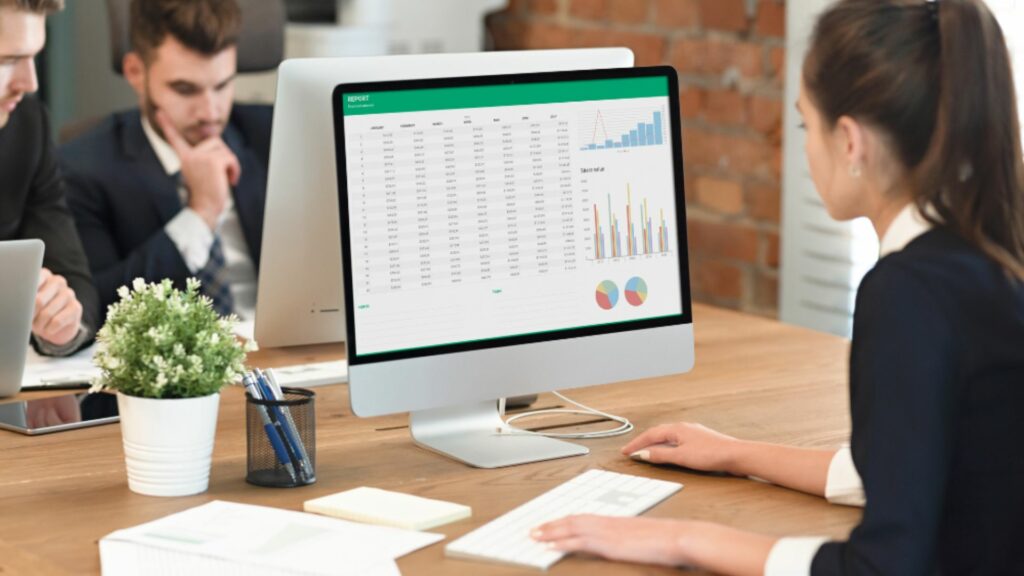Ever feel like you’re constantly battling a stock monster in your business? A robust inventory management system integrated with your POS system can be your hero! These features help you track your stock levels, optimize ordering, and gain valuable insights to keep your business running smoothly. This guide explores the top features of inventory management in a POS system, empowering you to take control of your stock and boost your bottom line.
Real-Time Stock Tracking
The foundation of any good inventory management system is real-time stock tracking. This feature allows you to see exactly how much of each item you have in stock at any given moment. This eliminates the need for manual counting and ensures you always have accurate data to make informed business decisions.

Benefits
- Say goodbye to stockouts and lost sales.
- Avoid overstocking and wasted storage space.
- Improve order accuracy and prevent overspending.
- Gain a clear picture of your best-selling and slow-moving items.
Stock Alerts: Get Notified When It’s Time to Reorder
alerts in your POS system can notify you when stock levels for specific items reach a predefined threshold. This allows you to proactively place new orders before you run out, ensuring product availability and customer satisfaction. You can customize these alerts based on factors like lead times, sales trends, and minimum stock requirements.
Benefits
- Maintain consistent product availability and prevent lost sales.
- Improve cash flow by avoiding unnecessary emergency purchases.
- Optimize your ordering schedule and reduce the risk of stockouts.
- Free up time and resources by focusing on strategic tasks instead of reactive restocking.
Low-Stock and Out-of-Stock Reports
Inventory management systems can generate reports that highlight low-stock and out-of-stock items. These reports allow you to identify potential stock issues before they become major problems. By analyzing these reports, you can adjust your ordering patterns and ensure you have enough stock to meet customer demand, especially during peak seasons.
Benefits
- Proactively address potential stockouts and maintain customer satisfaction.
- Analyze trends and identify items prone to frequent stockouts.
- Optimize stock levels to maximize sales opportunities.
- Make data-driven decisions about purchasing and product selection.
Inventory Valuation
Inventory management systems can also calculate the total value of your stock at any given time. This inventory valuation feature provides valuable insights into the financial health of your business. You can track the cost of goods sold (COGS) and analyze your overall profit margins. This information is crucial for making informed decisions regarding pricing strategies, product selection, and purchasing budgets.
Benefits
- Gain a clear understanding of the financial value of your stock.
- Track your COGS and improve your profitability calculations.
- Identify areas for cost optimization and streamline your purchasing processes.
- Make informed decisions about pricing strategies and product mix.
Inventory Control
Inventory management systems can also offer features to help you control your stock and prevent shrinkage (loss of inventory due to theft, damage, or waste). These features might include:
- Serial number tracking: Track individual items for high-value products or items prone to theft.
- Expiring product alerts: Receive notifications when items are nearing their expiration date to avoid spoilage and waste.
- Purchase order management: Streamline the purchasing process and track orders from suppliers.
Benefits
- Minimize inventory shrinkage and protect your business from financial losses.
- Improve control over high-value items and prevent theft.
- Reduce waste by managing expiring products and optimizing stock levels.
- Streamline communication with suppliers and optimize purchase efficiency.
Integration with Other Systems
A POS system with robust inventory management features can integrate seamlessly with other business systems like accounting software and supplier portals. This integration eliminates manual data entry and ensures consistency across all your business operations.
